








The World Soundtrack Awards and Film Fest Gent honour outstanding achievement in music composition for film, television and gaming

Experience the best of film music during the symphonic and more experimental film music concerts, and indulge in numerous seminars, composer talks, panel discussions and masterclasses during the WSA Film Music Days in Ghent (Belgium). Get a glimpse behind the scenes of the film music industry.
Tue 15 Oct
10:00 - Kick-o WSA Film Music Days
11:00 - Composer's Talk: Philippe Rombi
14:00 - Capacity Triangle Panel: Composing in the Age of AI: Legal Challenges in Modern Film Scoring
15:30 - Composer’s Talk: Martin Phipps
Wed 16 Oct
10:00 - Workshop with Simon Franglen
10:00 - Workshop with Je Russo
10:00 - Intimate Conversation with Anthony Willis
10:00 - Intimate Conversation with Carlos Rafael Rivera
12:30 - WSA Meet & Greet
14:00 - WSA Nominees Round Table
20:00 - World Soundtrack Awards Ceremony & Concert
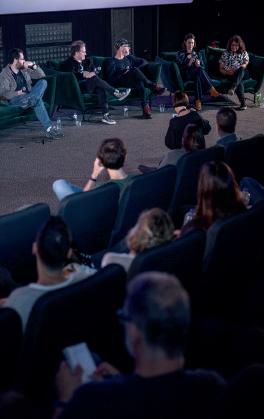
Thu 17 Oct
10:00 - Workshop with Simon Franglen
10:00 - Workshop with Natalie Holt
10:00 - Intimate Conversation with Nainita Desai
10:00 - Intimate Conversation with Maclaine Diemer
14:30 - Composer’s Talk: Elliot Goldenthal
15:30 - Creative Partnership Talk: Elliot Goldenthal and Julie Taymor
16:30 - James Horner: Autism and the Creative Process: a Discussion with his Widow, Sara Horner
20:00 - James Horner Tribute Concert
& info
? UK office MBI, Standard House,
12-13 Essex Street, London WC2R 3AA
Tel +44 (0) 20 8102 0900
? US office 6671 Sunset Blvd, Suite 1525, Los Angeles, CA 90028
EDITORIAL
Editor-in-chief
Matt Mueller
Supplement editor
Mark Salisbury
Deputy editor
Louise Tutt
Americas editor
Jeremy Kay
Executive editor, reviews and new talent
Fionnuala Halligan
Europe editor
Tim Dams
Head of digital
Orlando Parfitt
Asia & Middle East editor
Michael Rosser
Awards/box office editor
Charles Gant
Group head of production and art
Mark Mowbray
Group art director
Peter Gingell
Asia editor
Silvia Wong
Senior reporter, UK & International
Ben Dalton
Senior reporter, UK & Ireland
Mona Tabbara
Deputy reviews editor
Nikki Baughan
Locations editor
Gabriella Geisinger
Reporter
Ellie Calnan
Sub editor Willemijn Barker-Benfield
Senior contributing editor
Manori Ravindran
Contributing editors John Hazelton, Wendy Mitchell, Jean Noh, Mark Salisbury
ADVERTISING AND PUBLISHING
Commercial director/UK, Spain, Latin America, Australia, New Zealand
Scott Benfold
Germany, Italy, Scandinavia, Benelux, Eastern Europe
Gunter Zerbich
Director, Asia, France, Middle East, Africa Pierre-Louis Manes-Murphy President, North America
Nigel Daly
Locations account manager, North America
Nikki Tilmouth
Production manager
Jonathon Cooke
Marketing manager Danielle Cosh
Managing director, film and TV group
Alison Pitchford
Group managing director, MBI
Conor Dignam
SUBSCRIBE
+44 (0) 20 8102 0918

WSA salutes the careers and legacies of the world’s finest screen composers, while showcasing the talents of the next generation
The World Soundtrack Awards has chosen this year to celebrate the two-time Oscar-winning composer James Horner, who died in 2015 when his light aircraft crashed. Horner’s legacy is a strong one, with a career that began in the 1970s, encompassed 175 credits across films, TV series and music videos, and included some of the most iconic Hollywood scores of all time.
It’s his work with James Cameron that is perhaps best remembered, iconic scores for Titanic, Avatar and Aliens. But Horner’s list of credits is a roll call of some of the most influential Hollywood films of the last five decades, from Star Trek II: The Wrath Of Khan to Field Of Dreams, Braveheart to Apollo 13, and so many more.
As his longtime collaborator Simon Franglen notes in his interview on page 4, what also made Horner stand out was his interest in creating small-scale scores with four or five instruments as well as grand
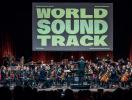
orchestral compositions. He will be honoured this year at the WSA ceremony and concert on October 16, followed by a tribute concert the next day.
As well as Horner, this year’s WSA ceremony will also celebrate Philippe Rombi as guest of honour and Elliot Goldenthal with the lifetime achievement award. And we fete all of this year’s WSA nominees, who are highlighted in this special issue on pages 6-10. Familiar names and new faces alike have been nominated, from UK musician Jerskin Fendrix who made his feature film composing debut writing the score for Yorgos Lanthimos’s Poor Things, to Hans Zimmer, another hugely prolific composer for big-budget projects who, like Horner, has two Oscars to his name.
Congratulations to this year’s nominees and to the World Soundtrack Academy for its celebration of musical composition for film, TV and games. n s Matt Mueller, editor-in-chief
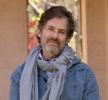
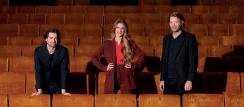
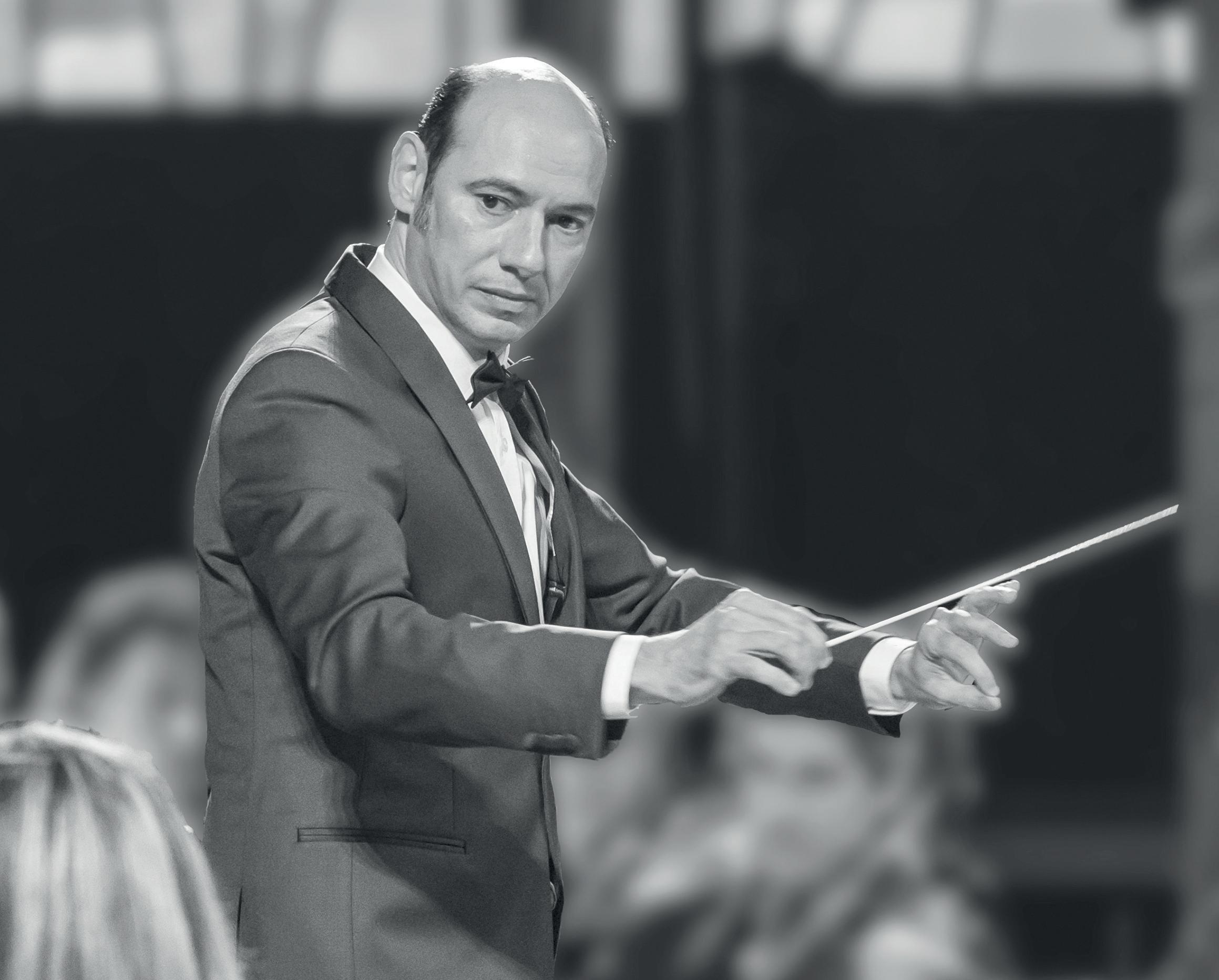

2 Music masters
Coming up on its quarter century, the World Soundtrack Academy continues to support and promote film music via its annual awards and beyond
4 An ocean of memories
The World Soundtrack Awards is celebrating the work of the late James Horner with a tribute concert featuring many of his best-known scores alongside a few of his lesserknown cues
6 Keeping score
The World Soundtrack Award nominees include up-and-coming talent and veteran composers working across film, television and games
11 Emotional support
Philippe Rombi, the French composer, pianist, conductor and World Soundtrack Awards guest of honour, on the intuitive process of turning feelings into music
12 Melody maker
Elliot Goldenthal receives a lifetime achievement award in Ghent, but the 70-year-old composer remains as busy as ever
Coming up on its quarter century, the World Soundtrack Academy continues to support and promote film music via its annual awards and beyond. Dan Jolin reports
Music has been integral to cinema since its very inception, from live accompaniments to silent films through to the blockbuster themes that have soundtracked our lives as much as the movies for which they were written. It is surprising, then, that for so much of film history there was no industry body purely devoted to supporting and promoting film music. Until, that is, the World Soundtrack Academy was formed almost 25 years ago.
Maggie Rodford was there right at the very beginning. A veteran music and score supervisor whose credits include The King’s Speech, Paddington 2 and the upcoming Wicked, Rodford was invited to join a panel about film music at what was then the International Film Festival of Flanders-Ghent (now Film Fest Gent), and also worked with Hans Zimmer on the first-ever live performance of his film scores at the festival in 2000.
Film Fest Gent had long given prominence to film music, but the success of the Zimmer concert convinced the festival to formalise it in the creation of the World Soundtrack Awards in 2001. “I’ve attended almost every year since,” says Rodford, who is now an advisory board member and has just been accoladed with the World Soundtrack Academy Industry Award. “It’s given me a chance to see how fantastically it’s developed along the way.”
The World Soundtrack Awards has become a must-attend event for film composers and industry professionals the world over. “I have
established composers asking me, ‘We want to go back to Ghent. What can we do to go back?’” laughs Academy advisory board member Thomas Mikusz, co-founder of White Bear PR, which specialises in composers and music supervisors.
“Composers work in their cave all year. They’re in their studio, they don’t get out much. But they come to Ghent, and they’re having breakfast together, doing panels together, then going out for a beer and hang-

‘Composers work in their cave all year. But they come to Ghent, and everyone mingles’
Thomas Mikusz, White Bear PR
ing out. Everyone mingles. People love going there, it’s an amazing environment.”
But there is far more to the World Soundtrack Academy than organising this valued and unique annual gathering. “It’s not just about the awards ceremony,” says Albert Lee, the Hong Kong-based former producer for Golden Harvest and Emperor Motion Pictures who is now executive director of Hong Kong International Film Festival and a recent recruit to the Academy’s advisory board. “It is a platform where anyone who is involved in film music — not only composers — can connect.”
The Academy’s advisory board consists of around 40 professionals, ensuring each member’s active engagement. The board meets twice
a year to discuss how best to promote and expand the Academy. It has grown remarkably, by around 30% in the past five years, inviting members from further afield than Europe and North America, and achieving greater gender balance through collaborations with groups such as the Alliance for Women Film Composers.
“It is a very worthwhile community for the film music industry,” says Lee, who joined in 2020. “Being a member has enabled me to meet a lot of music supervisors, and we don’t have many of those in Asia. I’m very happy to be connecting with a side of the business that I otherwise would not have.”
Rodford, managing director of the Air-Edel Group, has found similar benefits from her membership of the Academy. “I have met lots of people I wouldn’t have had the chance to meet and talk to from all around the world,” she says. “That’s been exciting. The World Soundtrack Academy helps make people aware that we’re a global market. There’s no borders. You don’t need a musical passport to cross over from France to the UK. Music is an international language.”
Of course, the Academy’s benefits extend far beyond its own board members. It plays a crucial role in nurturing up-and-coming composers through its Film Music Days. “We do a lot of educational work for young composers,” says Mikusz, “holding workshops and masterclasses, where there is matchmaking; they can meet industry professionals like myself, agents, music supervisors, and ask questions and be paired up.”
It also contributes to film music preservation, primarily through
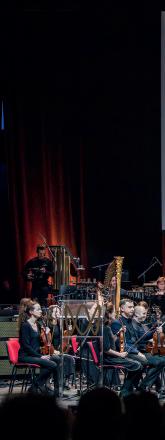
special concerts at the World Soundtrack Awards, with the Brussels Philharmonic. “Different composers [including Laurence Rosenthal, Mark Isham and Shigeru Umebayashi] have been invited to have their music performed at the ceremony, which has meant that new suites of music have been created and recorded,” explains Rodford. “Not all composers have the possibility of creating suites of music from their film or TV work, and it gives them an opportunity to have that music performed.”
Rodford also sees value in the Academy’s support of commissioned music generally. “People forget that Mozart and Handel were commissioned composers,” she points out. “They wrote music
The World Soundtrack Awards ceremony is the most high-profile string to its bow, but the work of the World Soundtrack Academy also covers education, music preservation and more
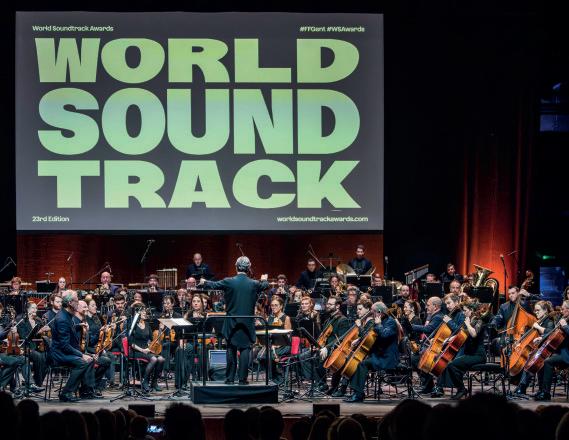
because somebody paid them to. Much of their music lives on to this day because somebody asked them to write it in the first place. It is important for the world of music to have that impetus for new music to be created. Very few composers are in the position of being selffinanced.”
The source of those commissions has broadened over the years. Rodford, Lee and Mikusz all describe the awards as a pioneer in its acceptance of video-game music alongside film and TV, creating a new award category in 2023.
“Video-game scoring was looked down on by the industry, but it’s just as creative,” says Mikusz. “It’s

‘It is a platform where anyone who’s involved in film music — not only composers — can connect’
Albert Lee, World Soundtrack Academy advisory board
more music than a film; a film sometimes has 16 minutes, 20 minutes. A video game has hours of music. It’s super-creative.”
The World Soundtrack Academy is already “very highly respected”
by the film industry, says Rodford. “When we ask for materials to back an award, there’s great support.”
Among music departments, says Mikusz, the Academy is “regarded very highly… It really means something to win an award at Ghent.”
But it still faces work to further raise its profile. “What can be done to go beyond the film music and video-game music communities?” muses Mikusz. “What can we do to be seen also as an awards ceremony that is important to the industry in general?”
Lee, meanwhile, hopes to see the Academy travel outside Belgium, “maybe taking events to Hong Kong, to Asia,” he suggests. “Hopefully it will be even more international, looking ahead.”
There is also the challenge of new technology. “What will be important is the continuing support of original music and the art of music written to picture,” says Rodford. “The danger now is that a filmmaker will go into an AI channel and just say, ‘Write music for this scene.’ But it might be derivative of whatever it’s being fed in the first place. You’ll never have the same individuality of a composer watching a scene and coming up with something truly original.
“We should be helping new directors and producers understand the importance of music that is well-written,” continues Rodford. “It is important for industry bodies like the Academy to provide a platform for the community to at least talk to each other about this.” n s
The World Soundtrack Awards is celebrating the work of the late James Horner with a tribute concert featuring many of his best-known scores alongside a few of his lesser-known cues. Mark Salisbury reports
arly on June 22, 2015, two-time Oscarwinning composer James Horner took off from California’s Camarillo airport in his Short Tucano light aircraft as he had so many mornings before. But this time Horner did not make it back safely, his plane crashing in Los Padres national forest, killing him on impact. He was 61.
“I remember talking to him the day before he died,” says friend and fellow composer Simon Franglen, whose association with Horner began with Titanic and who later assisted on several of his scores, including Avatar, The Karate Kid and The Amazing Spider-Man “We had three movies we were about to do, one after another — The Magnificent Seven, Hacksaw Ridge and The Great Wall. He was a very good pilot. He’d just got his flying licence for solo aerobatics and was very excited. I remember getting a text from him before I went to bed. At six o’clock the next morning, I get a phone call telling me what happened. It was hideous.”
Beginning his career with lowbudget maestro Roger Corman on The Lady In Red, Humanoids From The Deep and Battle Beyond The Stars, Horner got his big Hollywood break in 1982 scoring Star Trek II: The Wrath Of Khan and never looked back. His subsequent scores included 48 Hrs., Star Trek III: The Search For Spock, Cocoon, Commando, Aliens, Field Of Dreams, Glory, Legends Of The Fall and Braveheart, among many more. His score for James Cameron’s Titanic became
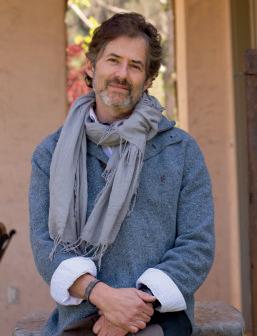
the bestselling orchestral film soundtrack ever, and he followed it with Avatar, which overtook Titanic as the most successful film of all time at the box office. Horner was also nominated for soundtrack composer of the year at the World Soundtrack Awards (WSA) in 2002 for A Beautiful Mind, and again for Troy in 2004 and Avatar in 2010.
“James was an icon of film music, who created some of the most memorable and emotional scores we have ever heard,” says Franglen. Following Horner’s death, he picked up the baton on the three films they had in the works and was
later asked by Cameron to succeed his mentor as composer for the Avatar franchise, beginning with the Avatar theme park and followed by feature Avatar: The Way Of Water
“His music always had heart,” adds Franglen. “He wrote the scores that connected with the films rather than just being wallpaper behind.”
Throughout his career, Horner was a composer with a unique style — namely, he didn’t have one. He was constantly inventing and changing. This, says Franglen, was because Horner came of age as a musician “with electronics and synthesisers being part of his palette.

‘James was good at the textual side of things — it gave him places to go that more traditional composers couldn’t’ Simon Franglen, composer
I look at him as inheriting a lot of that vibe from Jerry Goldsmith, who was probably the first big user of synthesisers in films, who also integrated them with orchestra. James was extremely good at the textual side of things — it gave him places to go that a lot of the more traditional composers couldn’t. For instance, if you take Titanic, the score is two-thirds synthetic; that gives it a different feel than if it had been 100% orchestral.
“James also wrote beautiful themes, and themes that were sophisticated, intricate, often very long and evolving,” continues Franglen, who won the WSA discovery of the year award in 2023 for Avatar: The Way Of Water and will return to perform extracts at this year’s awards ceremony and concert on October 16. “He was probably one of the first people to really integrate international textures, sounds and flavours, and use them in a rhythmic way.”
Moreover, Horner would alternate between big and little scores. “A lot of composers have enormous works,” notes Franglen. “Take Alan Silvestri, a phenomenal composer, I work with him. But I don’t know
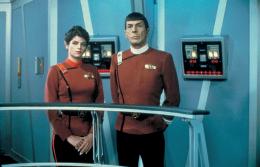
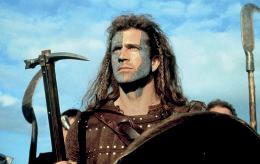
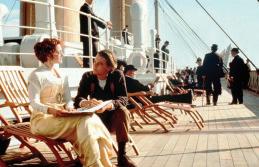

of many, small-scale Alan Silvestri scores that are four or five players or instruments, whereas you can probably name 10 or 15 Horner scores [like] that. This scattergun approach is part of what made him special; he was looking for different things.”
In celebration of his legacy, the WSA and Brussels Philharmonic, conducted by Belgian maestro Dirk Brossé, will honour the composer with the James Horner tribute concert in Muziekcentrum De Bijloke on October 17, where a selection of his scores will be performed. “There are going to be a variety of pieces,” says Franglen, who helped choose the music. “There will be cues from films you would expect, and hopefully some more unusual items and rarely performed things as well.”
The selection will include Titanic “At the moment, we have ‘Distant
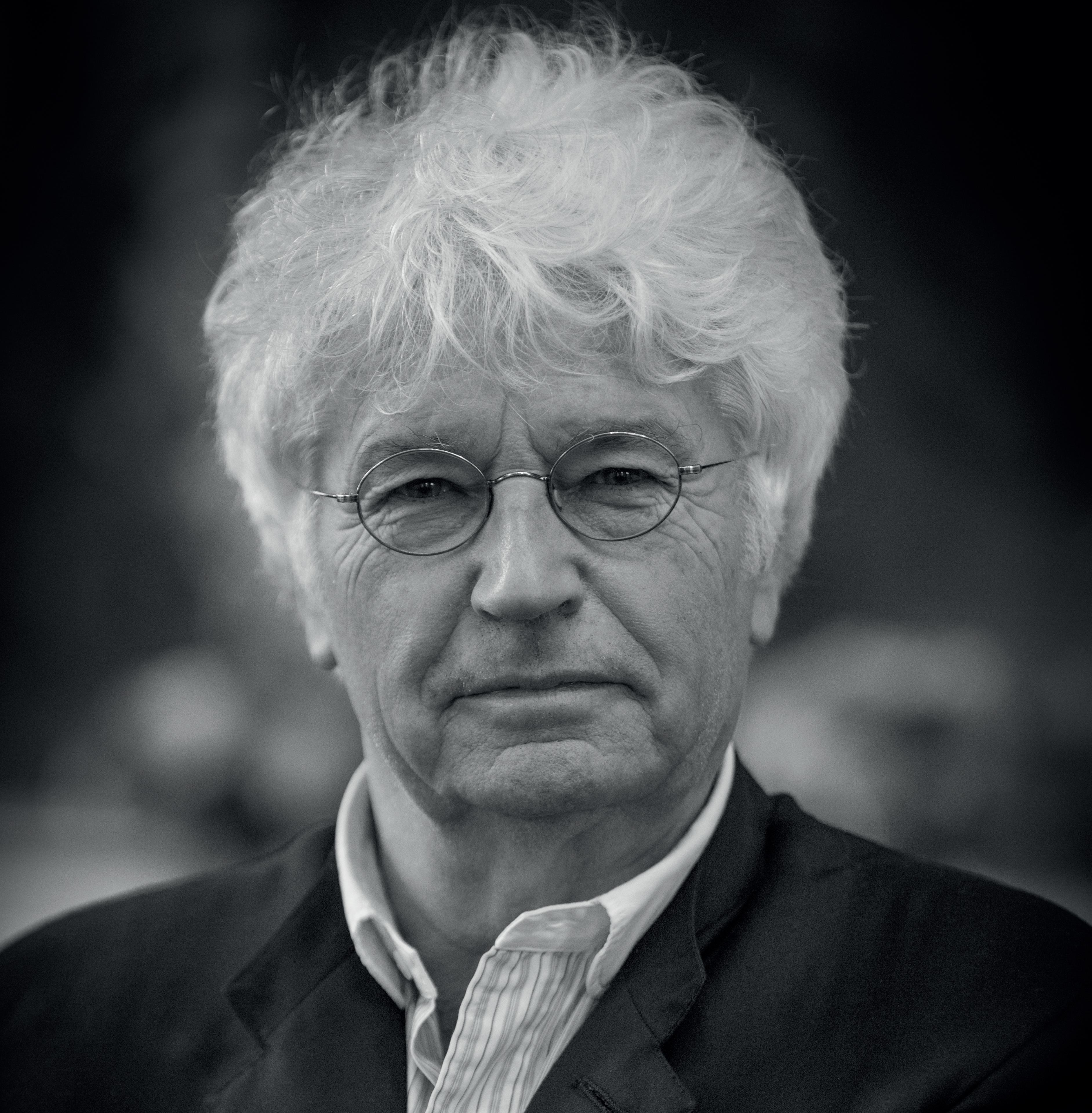
Memories’ and ‘Take Her To Sea, Mr Murdoch’, and we’re probably going to finish with ‘My Heart Will Go On’, with a singer, which is appropriate,” says Franglen. “We will have Legends Of The Fall, a combination of ‘Samuel’s Death’ and ‘The Ludlows’ theme, and the main title from The Wrath Of Khan, which is one of the great film cues. We will have the Avatar suite, which is nine-and-a-half minutes. We should have Braveheart. We’re trying to get A Beautiful Mind and The Mask Of Zorro. And the Sneakers theme, which is rarely performed.
‘My relationship with James was very, very deep. He was among my very close friends. I did four films with him. James was a pumping heart. His music was all about feelings. It was all about emotions’
Jean-Jacques Annaud, director, The Name Of The Rose and Enemy At The Gates
‘James wrote beautiful themes sophisticated, intricate and often long and evolving’
Simon Franglen
“That’s my favourite score of James’s. It was unlike anything he’d written before, and was unlike anything he ever wrote afterwards, sort of this outlier. I’m also pleased there’s going to be a cue from Krull,
which is an early work, as well as things like The Rocketeer that I think people will enjoy.”
In the end, says Franglen, the decision as to what music to choose was a case of balancing the lavish with the intimate, the music written for orchestra with that for piano or synthesiser, and keeping it all to around 70 minutes.
“There’s action, but we’re giving people big thematic things as well,” he concludes. “There’s probably another 20 scores I would have liked to have things from but it’s going to be stuffed full, this concert.” n s
The World Soundtrack Award nominees include up-and-coming talent and veteran composers working across film, television and games. Adam Cole profiles the 2024 selection
This award is given to the composer judged to have created the best film music for feature or documentary in the last year, either as an individual score or body of work. Last year’s winner was Volker Bertelmann.

Jerskin Fendrix (UK)
Kinds Of Kindness; Poor Things Fendrix only had one album to his name — an electro-pop record titled Winterreise — when Yorgos Lanthimos asked him to write an original score to Poor Things. The former University of Cambridge music student composed large portions of his debut score before filming had started, basing his work on Lanthimos’s script, set design and concept art.
Earning himself an Oscar nomination for best original score, Fendrix (real name Joscelin DentPooley) continued his collaboration with the Greek filmmaker on his next project Kinds Of Kindness, once again writing the score before principal photography had even begun.
“Writing music for Yorgos Lan-
thimos forces one to plumb such depths of humanity,” says Fendrix. “Poor Things through its mutations of love, and Kinds Of Kindness through its psychopathy.
“Before any of the aesthetic considerations, even before the music, I am looking in the script for answers. What is this? What part of this do I examine or defend? What do I say? Then, I am so lucky, my job is to say it as obnoxiously as possible.”
Fendrix is currently working with Lanthimos for a third time, on the sci-fi comedy Bugonia
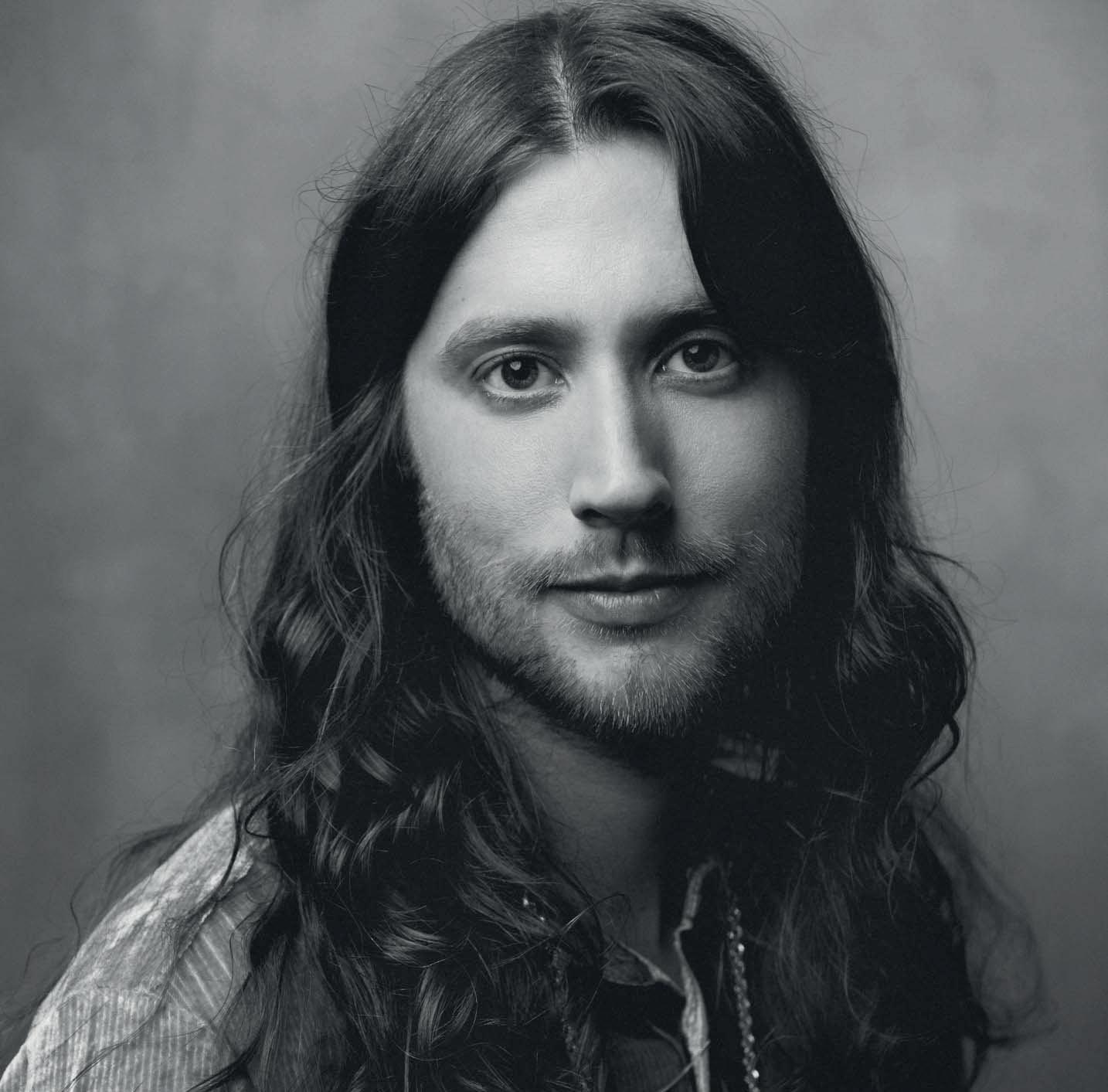
Ludwig Göransson (Sweden) Oppenheimer
Göransson is no stranger to audiences, with four Grammys, two Oscar wins (from three nominations), a Bafta and several BMI awards to his name. Having met director Ryan Coogler at USC Film School, the Swedish composer scored his feature debut for Coogler’s Fruitvale Station, marking the start of a longlasting collaboration.
Known to reinvent his sound for each project, Göransson has composed the score for Hollywood blockbusters such as Black Panther, for which he won his first Oscar, Christopher Nolan’s Tenet and most recently Oppenheimer, again
for Nolan. “I realised that the only way to start my work on this movie was to focus on the emotional core of the character,” says Göransson of Oppenheimer. “You want to feel what he feels, see what he sees. Not to sit there and judge him.”
Göransson will reunite with Coogler in 2025, scoring the director’s next, as-yet-untitled feature.

Laura Karpman (US) American Fiction; The Marvels; Rock Hudson: All That Heaven Allowed Oscar-nominated and multiple Primetime Emmy Award-winning composer Karpman has had a banner year, working on projects such as American Fiction, Rock Hudson: All That Heaven Allowed and The Marvels — receiving a Hollywood Music in Media Award for the latter.
“The scores [for American Fiction and Rock Hudson] really do relate powerfully in ways that are difficult to explain,” notes Karpman. “Rock Hudson was about writing great themes and then implementing them to picture. Making a plan and putting a lot of great jazz musicians in a room together and then applying them to the picture. With American Fiction, it was much more of a typical scoring process but using jazz in that
process. There’s ‘Monk’s Theme’, there’s the ‘Family Theme’, there are all these different themes as well as moments of improvisation.
“They are much smaller and woven around dialogue in a different kind of way,” she adds. “It’s a talking movie so you’re in there like the dialogue serves as another musical instrument. It’s a little bit different than scoring a documentary. So the process was different even though musically they share a common language.”
Karpman started writing music from the age of seven, and graduated from the Juilliard School in New York with a doctorate in music composition. Drawing influence from her explorations in jazz, she is also noted for her Grammy award-winning 2015 album Ask Your Mama, a multimedia setting of Langston Hughes’ 1961 poem of the same name.
Her upcoming work includes scoring season three of the Marvel TV series What If…?.

Studying under the UK composer John Powell, Willis contributed additional music to the scores of major Hollywood titles such as Solo: A Star Wars Story, Jason
Bourne and Pirates Of The Caribbean: Salazar’s Revenge.
He first collaborated with UK director Emerald Fennell on her debut feature Promising Young Woman, earning himself a Bafta nomination for best original score, as well as a nomination for discovery of the year at the World Soundtrack Awards in 2021. Willis collaborated once more with Fennell on 1990s-set psychological thriller Saltburn, matching the filmmaker’s dreamy tone with a nostalgia-packed score.
Next up, Willis is set to score animation feature Hump as well as John-Michael Powell’s upcoming revenge thriller Violent Ends.

Hans Zimmer (Germany) Dune: Part Two; The Creator
With a catalogue of more than 150 films, the World Soundtrack Awards honorary member has scored some of the biggest Hollywood titles of recent years, including The Lion King, Gladiator, The Dark Knight, Dunkirk and Dune, while making contributions to franchises such as Mission: Impossible, Pirates Of The Caribbean and James Bond.
Zimmer has won two Academy Awards (from 12 nominations), four Grammys and three Golden Globes.
After starting out his career in London, Zimmer moved to the US in the 1980s and launched Remote Control Productions, a film-score company working with names such as Lorne Balfe, Nicholas Britell and John Powell. The German composer’s upcoming work includes Netflix TV series Twilight Of The Gods and Blitz for Apple TV+.


Established in 2016, this award recognises the craft of scoring music for high-end television series. Last year’s winner was Nicholas Britell for Succession
Nick Chuba (US), Atticus Ross (UK), Leopold Ross (UK) Shōgun
Atticus Ross is a UK producer and composer best known for his collaboration with Trent Reznor on the Oscar-winning soundtrack for The Social Network. US composer Chuba began writing for Atticus Ross in 2014, making additions to the scores of major Hollywood productions. Chuba and Leopold Ross (brother of Atticus) previously worked together on The Girl From Plainville, Operation Varsity Blues and Dr. Death
The three spent almost two years on the score for Shōgun, writing more than four hours of original music.
Natalie Holt (UK)
Loki, season two
Three-time Primetime Emmynominated UK composer Holt became known to audiences through her work on Disney+ series Obi-Wan Kenobi. A graduate of the Royal Academy of Music and the National Film & Television School, Holt has worked with composers such as Hans Zimmer, John Williams


and Hildur Gudnadottir. She won the Ivor Novello award in 2015 for The Honourable Woman and is known for combining large orchestral scores with electronic sounds — as seen in Loki
James Newton Howard (US)
All The Light We Cannot See, season one
The career of nine-time Oscarnominated Howard spans more than 30 years and 140 film and TV projects. Best known for his work on The Hunger Games, The Dark Knight (for which he won a Grammy with Hans Zimmer) and the Fantastic Beasts franchise, Howard is an acclaimed producer and arranger, working with Elton John, Rod Stewart and Chaka Khan. He won the 2008 World Soundtrack Awards film composer of the year for Charlie Wilson’s War, Michael Clayton and I Am Legend
Martin Phipps (UK)
The Crown, season six Having initially studied drama at the University of Manchester, Phipps composed his debut score for 1999 TV drama Eureka Street
The two-time TV Bafta recipient and five-time Ivor Novello winner has composed the music for acclaimed UK TV dramas such as War & Peace, Peaky Blinders and The Crown. Phipps is the founder of Mearl, a project that brings together film composers to work collaboratively. His most recent film score was for Ridley Scott’s Napoleon


Carlos Rafael Rivera (US) Griselda; Lessons In Chemistry; Monsieur Spade
Last year was quite the ride for the US composer, scoring Netflix’s Griselda, Apple TV+’s Lessons In Chemistry and Scott Frank’s Monsieur Spade. The Grammy and two-time Primetime Emmy-winning composer’s previous work includes Frank’s The Queen’s Gambit. Rivera studied under Randy Newman and is an associate professor in media scoring and production at the University of Miami, as well as an acclaimed guitarist. His upcoming projects include Frank’s Department Q for Netflix.
Jeff Russo (US) Fargo, season five; Ripley Two-time Grammy nominee and Primetime Emmy-winning Russo is one of the industry’s most versatile composers. Best known for scoring all five seasons of the Emmy and Golden Globe-winning series Fargo, his credits include Star Trek: Discovery, The Umbrella Academy and action thriller Mile 22. Recent work includes Netflix’s Ripley and Chiwetel Ejiofor’s biographical drama Rob Peace. Russo is also a founding member of Grammynominated rock band Tonic.


Awarded to the best score for a recent Belgium feature.

Amenra (Belgium)
Skunk
Post-metal Belgium band
Amenra are nominated for work on their first feature film
Skunk

Bjorn Eriksson (Belgium)
When It Melts
Flemish musician and composer Eriksson is nominated for the drama When It Melts
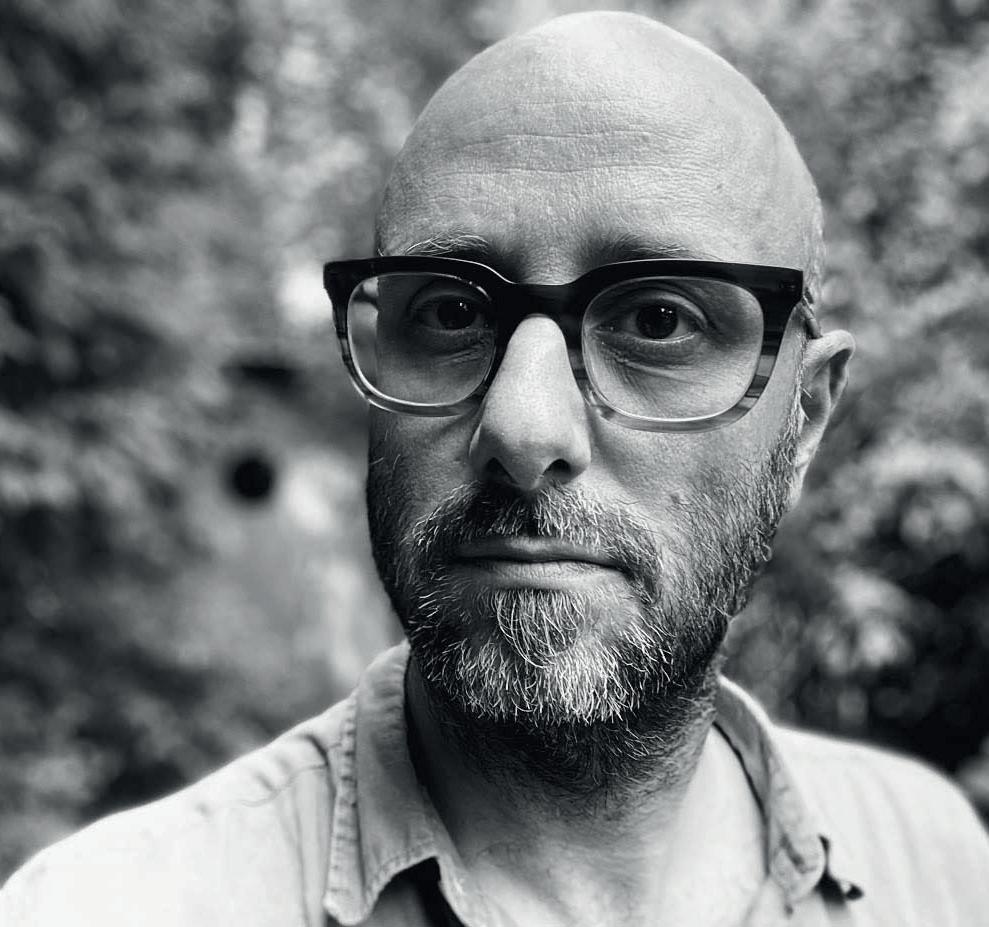
Geert Hellings (Belgium)
Wil
Known for scoring Patrick and Duffel, Hellings is nominated for Tim Mielants’ Second World War film Wil
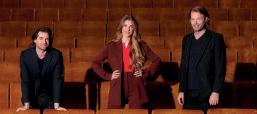
Given to a feature or documentary composer who had a breakthrough year on the international stage.
Diego Baldenweg with Nora Baldenweg and Lionel Baldenweg (Switzerland/Australia)
In The Land Of Saints And Sinners
The Baldenweg siblings have composed music for more than 300 advertising campaigns as well as films The Little Witch, La Femme Et Le TGV and Head Full Of Honey
The trio are nominated here for their sweeping orchestral score on Robert Lorenz’s action thriller
In The Land Of Saints And Sinners
Jerskin Fendrix (UK)
Poor Things
This is the second nomination this year for UK singer, songwriter and composer Fendrix, who is also in the running for the film composer of the year award.
Carlos Rafael Rivera (US)
Ezra
Rivera’s intimate soundtrack for Tony Goldwyn’s Ezra captures the worldview of a child with autism.

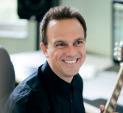
The Grammy- and two-time Primetime Emmy Award winner is also nominated for television composer of the year.
Caroline Shaw (US)
Julie Keeps Quiet
US composer Shaw has won a Pulitzer Prize and a Grammy for her concert work. Faced with the challenge of scoring a film about silence, her nominated work is as intimate as the story itself.
Anthony Willis (UK) Saltburn
After his discovery of the year nod in 2021, UK composer Willis is nominated for the second time with his compelling score for Emerald Fennell’s Saltburn, emphasising the disparate characters’ emotional inner landscapes. Willis is also in the running for the public choice award as well as film composer of the year.





Voted for by the fans.
Diego Baldenweg with Nora Baldenweg and Lionel Baldenweg (Switzerland/Australia)
In The Land Of Saints And Sinners Nominated for In The Land Of Saints And Sinners, the Baldenweg siblings are also in the running for this year’s discovery award.
Umberto Scipione (Italy) La Guerra Dei Nonni
Composer and musician Scipione’s score for La Guerra Dei Nonni has earned the Italian his first ever World Soundtrack Award recognition.
Amelia Warner (UK)
Young Woman And The Sea Last year’s winner in this cate-
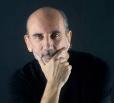



gory, UK composer Warner is nominated for Young Woman And The Sea, about the first woman to swim the English Channel.
Anthony Willis (UK)
Saltburn
Willis is nominated for three WSA awards for his Saltburn score, including discovery of the year. Other recent credits include the scores for Gerard Johnstone’s hit M3GAN for Blumhouse and Universal and Nate Parker’s upcoming drama Solitary
Hans Zimmer (Germany)
Dune: Part Two
Nominated for Dune: Part Two’s epic score, Zimmer is also in the running for film composer of the year.


Given to composers working on music for video games, this award is voted for by the fans. Last year’s winner was River Boy (Narayana Johnson) for Cult Of The Lamb
Brandon Boone (US)
Slay The Princess Boone specialises in scoring films, podcasts, audio dramas and video games. He is known for his atmospheric music in a variety of styles, from orchestral to electronic, and has worked on several award-winning short movies including Densmore, Beneath and Matryoshka. His video-game work includes horror title Slay The Princess as well as Scarlet Hollow and Scarlet Hollow Two
Maclaine Diemer (US), Bryan Atkinson (US), Bobby Brader (US), Bobby Rose (US), Jarryd Elias (US), Jaimee Jimin Park (South Korea), Michael Paraskevas (US)
Guild Wars 2: Secrets Of The Obscure
Diemer, who was nominated last year for Firmament, has contrib-


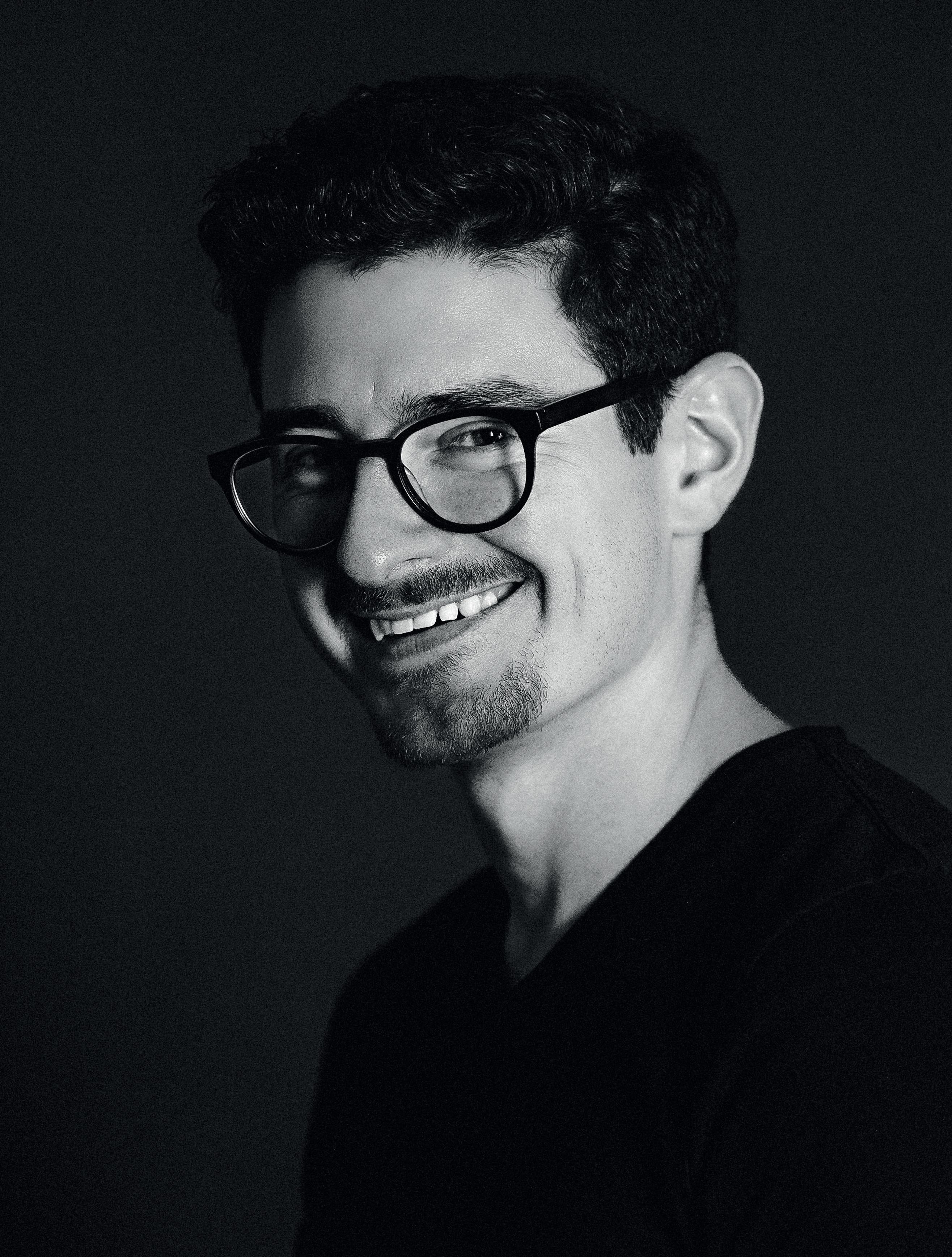


uted to some of the highest-profile titles across multiple console generations as well as PC. For Guild Wars 2: Secrets Of The Obscure, he worked alongside Atkinson, Brader, Rose, Elias, Jimin Park and Paraskevas.
Nainita Desai (UK)
Tales Of Kenzera: Zau Primetime Emmy Award winner Desai was named World Soundtrack Awards’ discovery of the year in 2021, and was nominated in this category last year for Immortality Her credits include docs The Deepest Breath and For Sama, and she is nominated here for the atmospheric score to Tales Of Kenzera: Zau
Tom Salta (US)
The Outlast Trials
Salta, aka Atlas Plug (ATlA5 PlUG), is a US recording artist and


soundtrack composer who works in film, television, advertising and video games. His game soundtracks include Tom Clancy’s Ghost Recon Advanced Warfighter 1 and 2, Cold Fear, Red Steel and Deathloop. Salta is nominated for horror videogame The Outlast Trials
George Strezov (Bulgaria)
Jagged Alliance 3
Bulgarian composer, conductor and orchestrator Strezov started work in music when he was 15, and has credits in TV series, movies, shorts, 2012’s Rhythmic Gymnastics World Championships, documentary series and numerous video games, such as Surviving Mars, Victor Vran, Guns & Robots and Strength Of The Sword Ultimate. He is recognised here for the musical universe he created in role-playing strategy game Jagged Alliance 3



Awarded to the best original song in a film or TV series. Last year’s winner was ‘Your Personal Trash Man Can’ from The Marvelous Mrs. Maisel by Thomas Mizer and Curtis Moore.
‘It Never Went Away’
American Symphony
Written by Dan Wilson and Jon Batiste, this emotional piano ballad is the closing number of Matthew Heineman’s feature and was

inspired by the lullabies Batiste wrote for his wife as she fought leukaemia.
‘Dance The Night’
Barbie
Written by Mark Ronson, Andrew Wyatt, Caroline Ailin and Dua Lipa, this disco-pop track reached number one in the UK singles chart.
‘I’m Just Ken’
Barbie
Written by Andrew Wyatt and Mark Ronson, this track serves as the climax to the character arc of Ryan Gosling’s Ken.



Sabam award for best original composition by a young composer
A composition contest for composers aged under 36.
Alex Mansour (US)
A composer, cellist and pianist, Mansour is passionate about writing for both the concert hall and the screen. He recently scored the

‘What Was I Made For?’
Barbie
Written by Finneas O’Connell and Billie Eilish, this heartfelt ballad serves as the emotional backing during a scene in which Margot Robbie’s Barbie meets the original creator of the Barbie doll.
‘Wahzhazhe’ Killers Of The Flower Moon
Written by Scott George and performed by the Osage Tribal Singers for Martin Scorsese’s feature film, ‘Wahzhazhe’ depicts the music of the Osage tribe who faced persecution after oil is discovered on their land.
‘Road To Freedom’ Rustin
Written and performed by Lenny Kravitz, this powerful anthem from George Wolfe’s biopic of civil-rights activist Bayard Rustin takes its influence from gospel and jazz, is a collaboration with jazz trombonist Trombone Shorty.
‘You’ve Never Had Chocolate Like This’ Wonka
Written by Neil Hannon, Paul King and Simon Farnaby, this song is the film’s main dance number as lead Timothée Chalamet embraces a sense of Broadway shimmer.














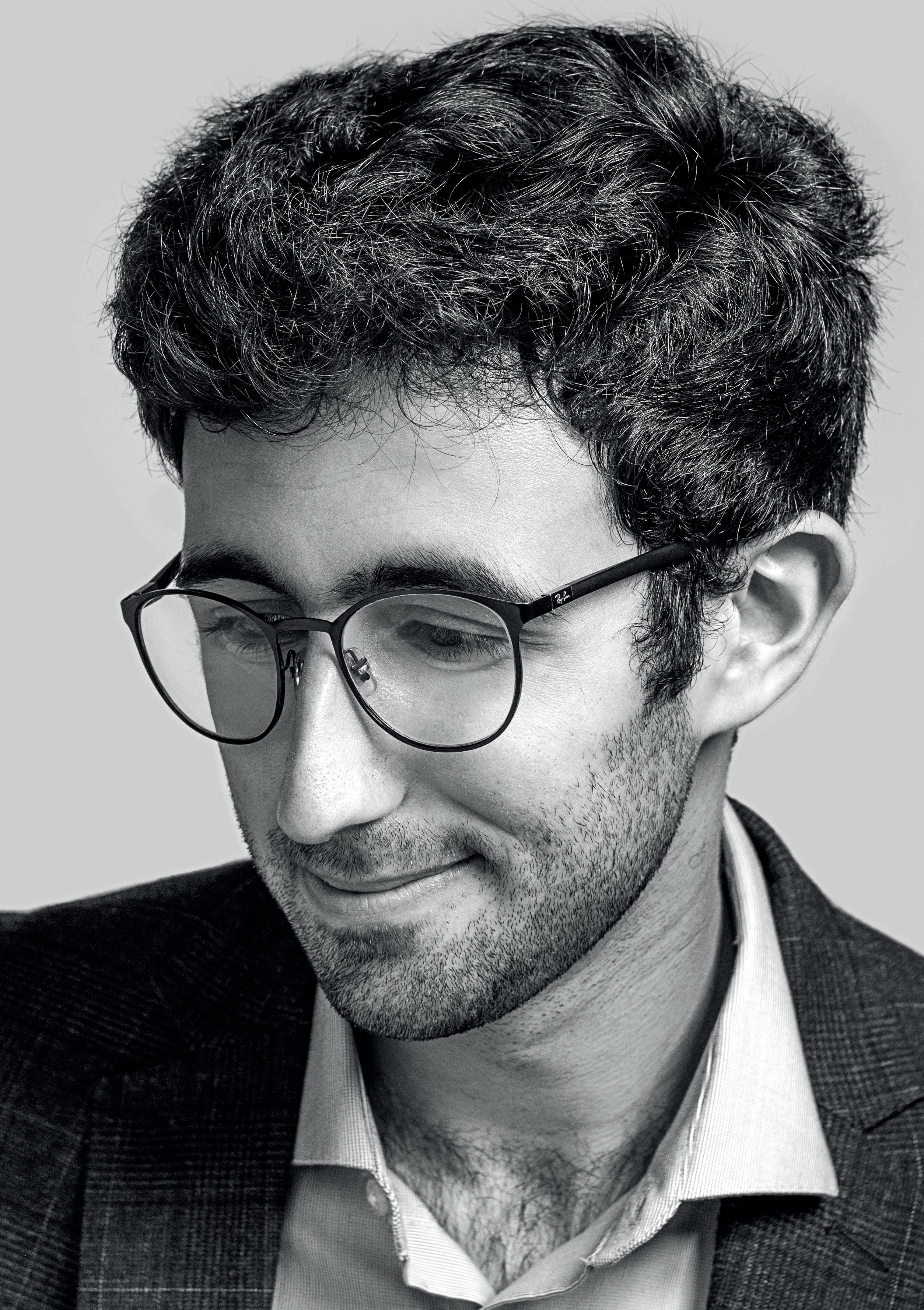

feature Radical Wolfe and geopolitical thriller/documentary SOMM: Cup Of Salvation

A composer and sound designer for audiovisual media living and
working in Berlin, Mansour’s body of work spans a multitude of genres and media. He scored the feature Looking For Erdnase
Florian van der Reijden (Netherlands)
Van der Reijden studied composing for film at the Conservatorium van Amsterdam, and the Netherlands-based musician’s credits include A Deer Caught In The Headlights, Freemd and Naar Waar De Lucht Blauw Kleurt. ■ s
Philippe Rombi, the French composer, pianist, conductor and World Soundtrack Awards 2024 guest of honour, talks to Rebecca Le er about the intuitive process of turning feelings into music
Philippe Rombi is a classically trained pianist, multiple award-winning composer and orchestra conductor with some 50 lm scores to his name, but he humbly describes himself as “a translator of emotions”.
Born to a family of nonprofessional music-lovers in southwest France, Rombi says that since he was a child, he “felt a need to create, to express emotion through music. Some people have diaries — my diary was my piano.”
He was also a cinephile, starting in his early teenage years when he would pull all-nighters with friends watching lm a er lm. Composing scores, he says, “blends my passions for cinema and music”.
Rombi’s lm career began ocially in 1999 with François Ozon’s Criminal Lovers, the rst of 13 collaborations with the French director on titles including Swimming Pool, Young & Beautiful, In e House, Potiche, Frantz and last year’s e Crime Is Mine. Other scores include Dany Boon’s sh-out-of-water comedy Welcome To e Sticks and Christian Carion’s Oscar-nominated war drama Joyeux Noel. More recent credits include Carion’s Driving Madeleine, Yann Gozlan’s Black Box and Visions, and Christophe Barratier’s e Time Of Secrets
Returning to Ghent for a third time following the 2005 world premiere of Joyeux Noel at Flanders International Film Festival, and sitting on the jury in 2008, Rombi says he is “deeply touched” as this year’s guest of honour, but also surprised: “I haven’t noticed the years passing by, I don’t look back, I just keep looking forward like I always have.”
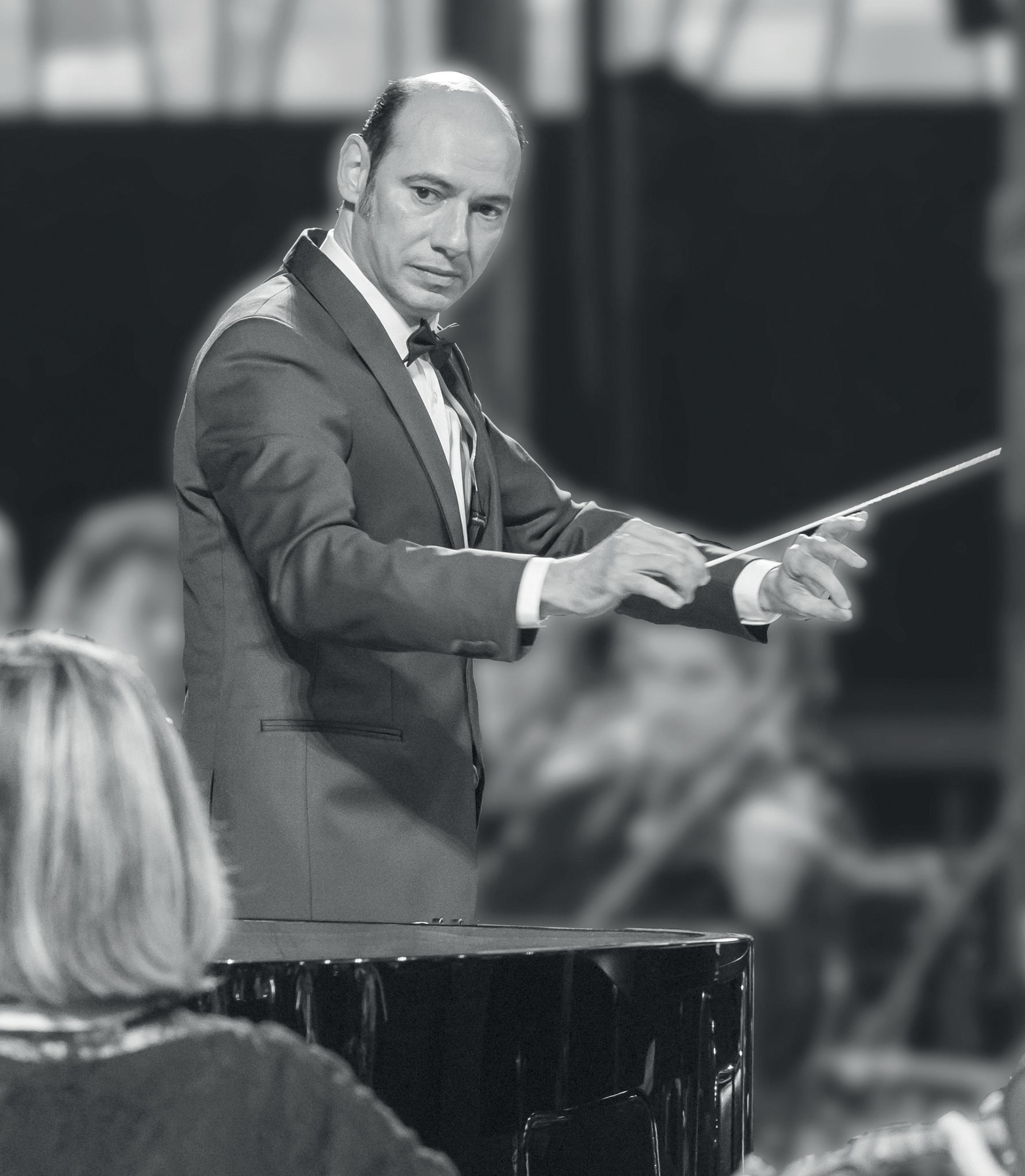
Rombi not only composes for the lms he works on but also conducts the orchestras for the recordings and plays the piano solos himself. He led the London Symphony Orchestra for Joyeux Noel and conducted the Brussels Philharmonic for Asterix: e Mansion Of e Gods. His lms range from auteur indie titles such as Ozon’s Under e Sand to mainstream big-budget fare like the Asterix lms. “I look at each lm as a completely new experience and have always tried to gear my choices toward taking risks,” explains Rombi. Amid the variety, however, his personal process is always the same. “ e rst step is instinctive — I react to a lm’s emotional state. It’s not rational and the inspiration can come anytime and anywhere — in a car, in the middle of the night. I have papers every-
WSA
‘I look at each film as a completely new experience and have always tried to gear my choices toward taking risks’
Philippe Rombi
where and I’m always jotting down notes and chords, themes and harmonies and can’t wait to run home to record my ideas while they’re still fresh in my mind.”
He describes the work of scoring as not only matching music to images but nding the perfect balance between dialogue and music. “You can manipulate the spectator, you can anger audiences or make
JM Cras
them feel calm, you can make time move more slowly or more quickly.” e indefatigable Rombi will reteam with Gozlan on Dalloway, a Mandarin Cinema-Gaumont production, and with Barratier on an adaptation of Second World Warset Belgian comic-book series Children Of e Resistance (Les Enfants De La Résistance).
Even with such a busy slate, Rombi still abides by the motto ‘c’est jamais gagné’, which translates broadly as ‘nothing in life is guaranteed’. He admits that, even as he began scoring lms for the likes of Ozon and Carion, he refused to give up his job as a piano teacher. “I was scared of tomorrow so I continued to give lessons and even paid a substitute teacher for a couple of years so I could keep my job in case my career in lm didn’t work out.”
While he has preferred to focus on projects at home in France, he remains “open” to international work. “I grew up with Steven Spielberg. When I watch his lms, I feel a harmony I can’t explain, like we’re in the same family. But then again, he works with the composer I admire most in the world, John Williams. But it would be a dream to work with him.”
In the meantime, says Rombi, “I continue to do what I did when I was a child. I invest everything into each lm — from composing to recording to editing and mixing. I’m there every step of the way. ey are my babies, and I give them a lot of love. For me, it’s not a business.”
Rombi will talk through the milestones of his career and give insight into his creative process during a Composer’s Talk on Tuesday, October 15 in Ghent. ■ s
Known for his versatility and willingness to experiment with styles, instrumentation and genre, US composer Elliot Goldenthal has enjoyed a long and fruitful career in opera, theatre and film. He picked up an Oscar, Golden Globe and World Soundtrack Award in 2003 for Frida, but the 70-year-old musician has his sights set firmly on the future.
“I tend to look back and regret, because I want to change things,” reflects Goldenthal, who will receive a lifetime achievement award at the World Soundtrack Awards on October 16. “Hope springs up when it comes to future projects and what I’m working on.”
‘I tend to look back and regret, because I want to change things. Hope springs up when it comes to future projects’
Elliot Goldenthal
Born in Brooklyn in 1954, Goldenthal was exposed to a variety of musical styles at a young age thanks to his older brother. “I remember going [with him] to the Five Spot, a wonderful jazz club in New York City, as a child of seven, eight or nine, hearing [Charles] Mingus, Miles Davis and [John] Coltrane.”
Aged 15, his brother took him to the seminal Woodstock music festival in 1969. “He was friendly with Janis Joplin, and she called and said, ‘Elliot, I have a concert, can you come?’ I had no idea what I was in for… it was a magical experience.”
After studying music, Goldenthal made a name for himself in New York theatre, collaborating with his partner Julie Taymor, before scoring two films for German director Ulli Lommel: 1979’s rock ’n’ roll western Cocaine Cowboys and 1980’s Blank Generation about New York’s
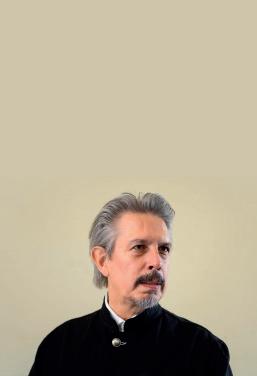
Elliot
Goldenthal will receive a lifetime achievement award in Ghent. Mark Salisbury
talks to the 70-year-old composer who remains as busy as ever
into his vision,” he recounts. “[He wanted the Batman films] to be very colourful. Batman Forever was a huge palette. Batman & Robin was less successful as a movie, but he was wonderful to work with.”
In comparison, Goldenthal found working for Michael Mann, for whom he scored Heat and Public Enemies, to be more of a “challenge”. “He is a gentleman, personally, but you have to be malleable.”
Melodic writing
Goldenthal’s longest collaboration has been with Taymor, for whom he scored Titus, The Tempest, Across The Universe, The Glorias and Frida “It’s a guitar-based score, very intimate,” he recalls of the latter, a biopic of artist Frida Kahlo. “She [Kahlo] spent a lot of time alone in bed, so I wanted something metaphorically that could be small enough to fit into her bed, that she could hold. It was strongly influenced by Latin America, not only Mexico. It’s always a joy to write melodies.”
In addition to distilling his near 50-year film career into 20 minutes of music to be played at the WSA lifetime achievement tribute,
punk scene. He spent much of the 1980s working in theatre, winning an Obie for his and Taymor’s musical Juan Darién, a version of a Requiem Mass sung in Latin and Spanish that proved to be his route into Hollywood after his agent sent a tape of the work to Gus Van Sant, who was looking for a composer on Drugstore Cowboy
“He didn’t like my orchestral music at all,” remembers Goldenthal, but, fortuitously, the film’s editor chanced upon the unmarked tape and used his Juan Darién score as temp music. Van Sant loved it and Goldenthal got the job. “It was a very unusual experience because he wanted to watch me create the music in real time, so I improvised the entire score, layer upon layer, electronically, until he liked it.”
The same year in 1989, Goldenthal provided the music for the Stephen King adaptation Pet Sematary, following it with scores for Alien3,
Demolition Man and Neil Jordan’s Interview With The Vampire
For the latter, Goldenthal had three weeks to write a soundtrack inspired by European church music, boy sopranos and Latin. “[Producer] David Geffen wanted to have a rock element, and I said, ‘No, I think it should sound like the 12th century.’ Neil loved the idea from the beginning.” Interview started a working relationship with Jordan that spanned five films. “Neil is a great collaborator because he lets the composer in on the script very early.”
Another meaningful partnership was formed with Joel Schumacher, for whom Goldenthal scored Batman Forever, Batman & Robin and A Time To Kill. “I have nothing but praise and fond memories of working with him. His sense of theatrics, his sense of humour, his adventure, he was always fighting the studios as well as inviting the composer
‘Neil Jordan is a great collaborator — he lets the composer in on the script very early’
Elliot Goldenthal
Goldenthal is working with Taymor on a musical theatre project based on Thomas Mann’s novella The Transposed Heads. “I’ve lived with it for a long time and I was never satisfied, so we started again, completely new songs, completely new settings,” he says. “I’ve just got back from London where we were doing a three-week workshop, auditioning a cast. We hope to open in London, probably a year from now.”
Goldenthal will give a Composer’s Talk in Ghent on Thursday, October 17, followed by a Creative Partnership discussion with director Julie Taymor. n s
Film Fest Gent is proud to present its new album in the festival’s series of annual film music recordings, devoted to the guest of honour at the 2024 World Soundtrack Awards:
Featuring music from:
Alien³ • Batman Forever
• Batman & Robin • Frida Cobb
• Heat • Interview with the Vampire
Michael Collins
• Public Enemies
Sphere • Titus
• Final Fantasy
Performed by the Brussels Philharmonic and conducted by Film Fest Gent music director Dirk Brossé
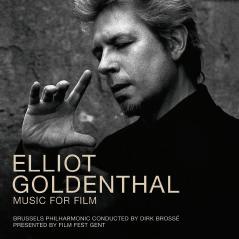
Licensed exclusively to Silva Screen Records, the new album will be released during the 51st edition of Film Fest Gent (9-20 October 2024) and is available to order from: shop.filmfestival.be and music retailers worldwide
OTHER TITLES AVAILABLE IN THIS SERIES
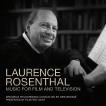
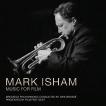
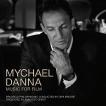
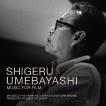
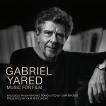
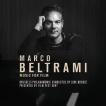
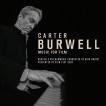
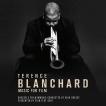
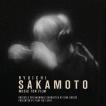
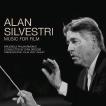
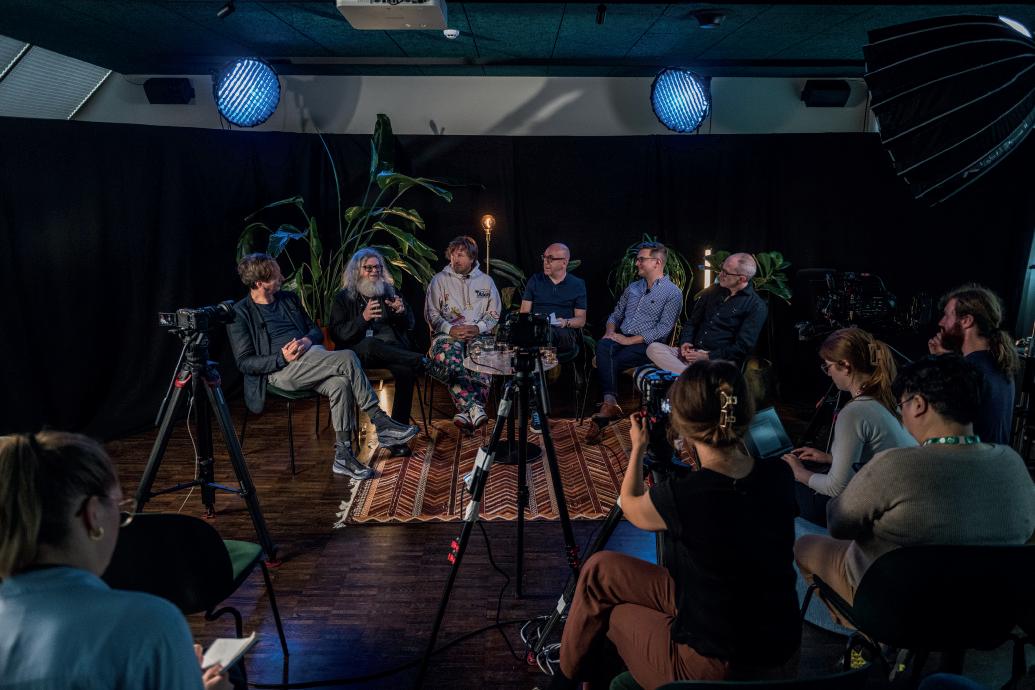
As a film music professional, you can become a member of the World Soundtrack Academy. You’ll have the opportunity to submit your scores and vote for the World Soundtrack Awards. Join our community and connect with fellow composers, agents, music supervisors, publicists and producers.